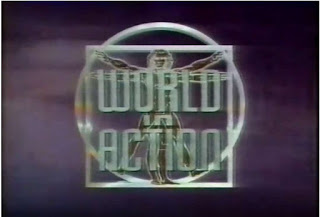TV Review: Fighting a Losing Battle
It has been a long, hot summer and the TV companies have been fighting a  losing battle with the weather as ratings tumble in inverse proportion to soaring temperatures. Repeats of Fawlty Towers and the Likely Lads had been about the best on offer—twenty-and thirty-year-old evergreen repeats. However, the odd interesting snippet emerges from the programming still, and this was certainly the case with World In Action on 7 August.
losing battle with the weather as ratings tumble in inverse proportion to soaring temperatures. Repeats of Fawlty Towers and the Likely Lads had been about the best on offer—twenty-and thirty-year-old evergreen repeats. However, the odd interesting snippet emerges from the programming still, and this was certainly the case with World In Action on 7 August.
World In Action asked whether Britain’s love affair with the motor car is now over. Anti-car protesters have taken to the streets, motorway protesters have held up new road-building schemes and the government itself has asked car users to use other forms of transport during the stifling heat in order to minimise pollution. As World In Action pointed out. it is this latter phenomenon which is in many ways the most interesting. It was, after all, Mrs Thatcher who said in 1979 “nothing should be allowed to come in the way of the great car economy”. The problem for the government—and any future government for that matter—is that a number of contingencies have appeared to get in the way of the “great car economy”.
World In Action interviewed doctors who testified that asthma among children increases in incidence near main roads, as do cases of chronic bronchitis and emphysema. In some streets, over a third of children need to use inhalers, objects which were rarely seen in schools thirty years ago but which are now standard equipment for tens of thousands of children all over Britain, especially those in the cities.
Slow coaches
As well as pollution there is the rising problem of traffic congestion and its associated difficulties. Forget the adverts for the top-performance speedsters—in London the average car speed is now down to 12 miles per hour and still falling. In comparison to some cities though this is quite good—congestion in Cairo and Mexico City to name but two is much worse, as is the pollution.
Apart from appeals to people’s good natures, the government appears to be powerless. Cars could be banned from some city centres altogether, as has been mooted, but experiments in other countries shows that this only shifts the problem to the suburbs and inner city areas. Some cities have taken the draconian step of banning car drivers from using their cars on certain days, letting drivers A-K out on Tuesdays, Thursdays. Saturdays and alternate Sundays only. Not quite the victory for the great car economy that Thatcher had in mind.
But if the government are stuck for a viable solution, the protesters from Reclaim the Streets and other single-issue groups have no better answer. Their recent attempts at blocking streets and holding up traffic in Camden Town and Islington have certainly highlighted the problem (if it really needs highlighting anyway) but they have not improved matters. In fact, their direct-action street protests only served to make the congestion worse, transferring the problem to adjacent streets.
